Publications
Articles, publications, books, tools and multimedia features from the U.S. Institute of Peace provide the latest news, analysis, research findings, practitioner guides and reports, all related to the conflict zones and issues that are at the center of the Institute’s work to prevent and reduce violent conflict.
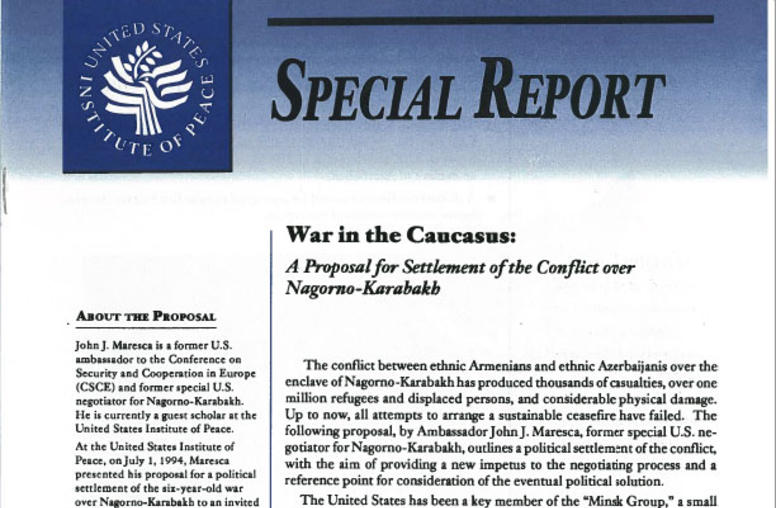
War in the Caucasus: A Proposal for Settlement of the Conflict over Nagorno-Karabakh
The conflict between ethnic Armenians and ethnic Azerbaijanis over the enclave of Nagorno-Karabakh has produced thousands of casualties, over one million refugees and displaced persons, and considerable physical damage. Up to now, all attempts to arrange a sustainable ceasefire have failed. The following proposal, by Ambassador John J. Maresca, former special U.S. negotiator for Nagorno-Karabakh, outlines a political settlement of the conflict, with the aim of providing a new impetus to the n...
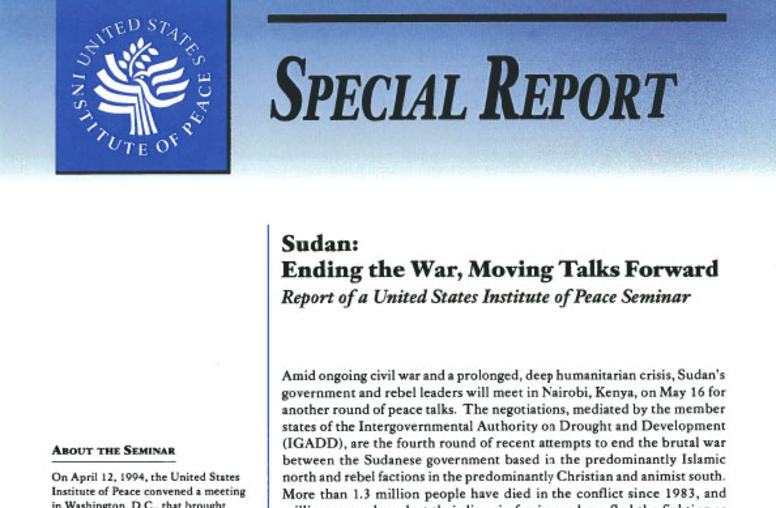
Sudan: Ending the War, Moving Talks Forward
Civil war has plagued Sudan off and on since decolonization began in 1955. Between 1955 and 1972, war raged between the predominantly Arab and Islamic north and the Christian and animist south over southern claims for autonomy and self-rule. The war ended with the Addis Ababa agreement, which granted local autonomy to the south. Currently there are deep disagreements in the north between the Islamist government and opposition parties (e.g., the Umma Party and the Democratic Unionist Party) o...
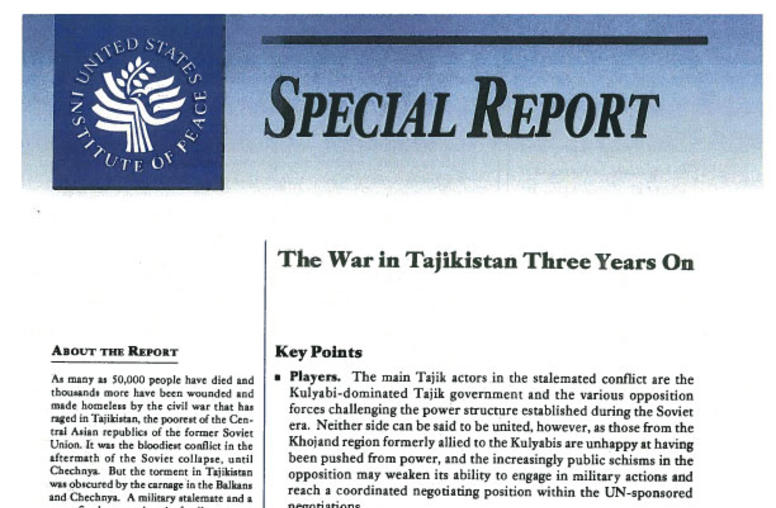
The War in Tajikistan Three Years On
As many as 50,000 people have died and thousands more have been wounded and made homeless by the civil war that has raged in Tajikistan, the poorest of the Central Asian republics of the former Soviet Union. On June 6, 1995 the United States Institute of Peace organized a forum on the Tajikistan conflict to explore prospects for negotiations and an end to the war. It included Ambassador Stanley T. Escudero, who had recently completed three years as the chief U.S. representative in the Tajik ...
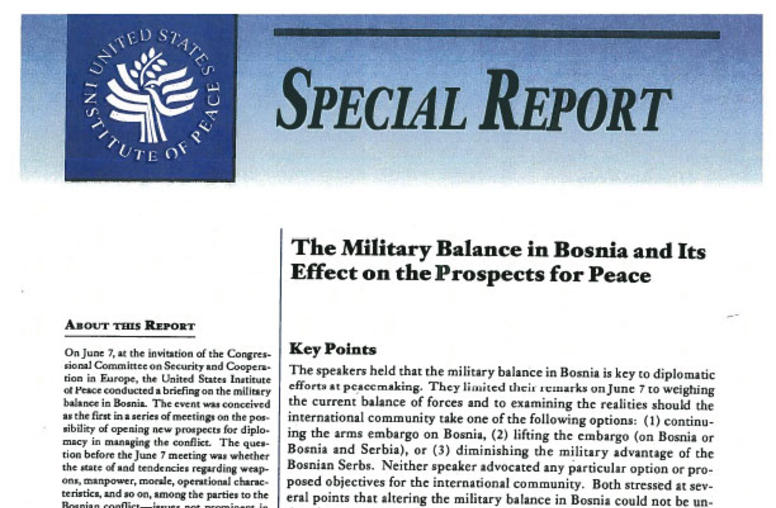
The Military Balance in Bosnia and Its Effect on the Prospects for Peace
On June 7, at the invitation of the Congressional Committee on Security and Cooperation in Europe, the United States Institute of Peace conducted a briefing on the military balance in Bosnia The event was conceived as the first in a series of meetings on the possibility of opening new prospects for diplomacy in managing the conflict.
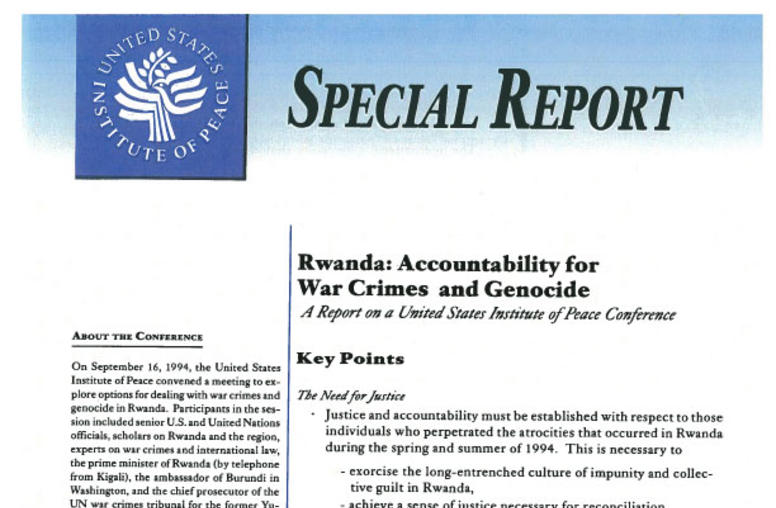
Rwanda: Accountability for War Crimes and Genocide
Before 1994, Rwanda was the most densely populated country in continental Africa. Between April and August 1994, that statistic shifted radically, as Rwanda lost 20 percent to 40 percent of its population to slaughter or exile.
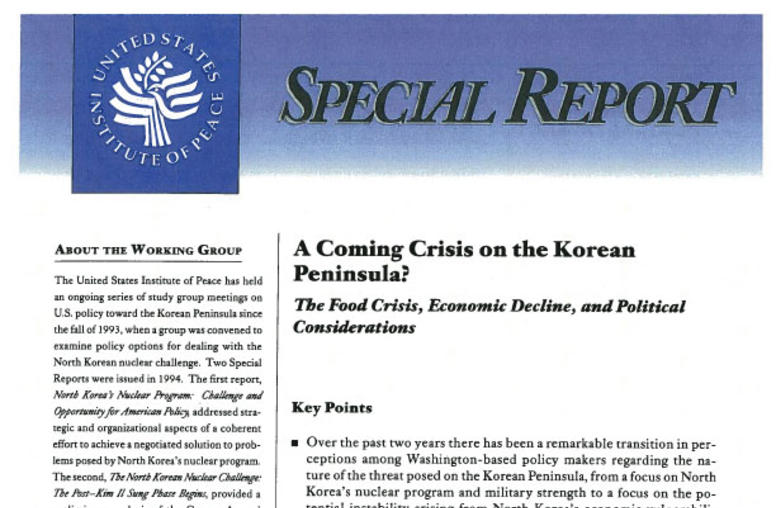
A Coming Crisis on the Korean Peninsula? The Food Crisis, Economic Decline, and Political Considerations
Over the past two years there has been a remarkable transition in perceptions among Washington-based policy makers regarding the nature of the threat posed on the Korean Peninsula, from a focus on North Korea's nuclear program and military strength to a focus on the potential instability arising from North Korea's economic vulnerabilities and political uncertainties. The major challenge for the United States is to pursue its strategic objectives in Northeast Asia by dealing with the prospect...
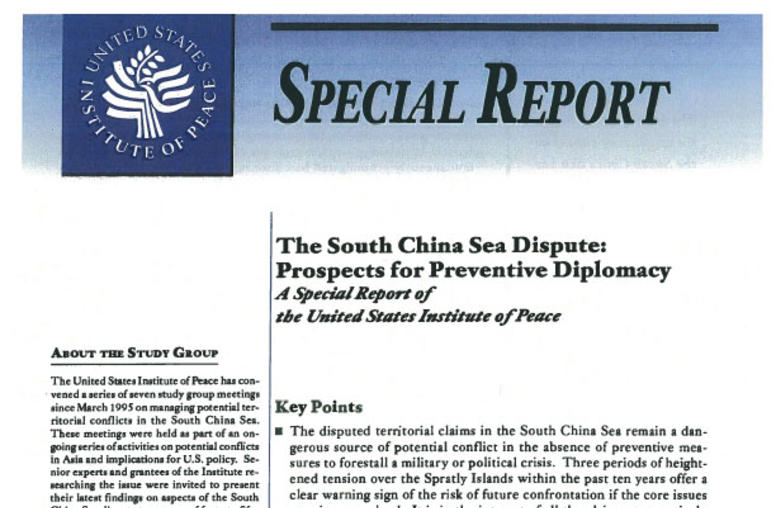
The South China Sea Dispute: Prospects for Preventive Diplomacy
The United States Institute of Peace has convened a series of seven study group meetings since March 1995 on managing potential territorial conflicts in the South China Sea. These meetings were held as part of an ongoing series of activities on potential conflicts in Asia and implications for U.S. policy. Senior experts and grantees of the Institute researching the issue were invited to present their latest findings on aspects of the South China Sea dispute to a group of forty to fifty specia...
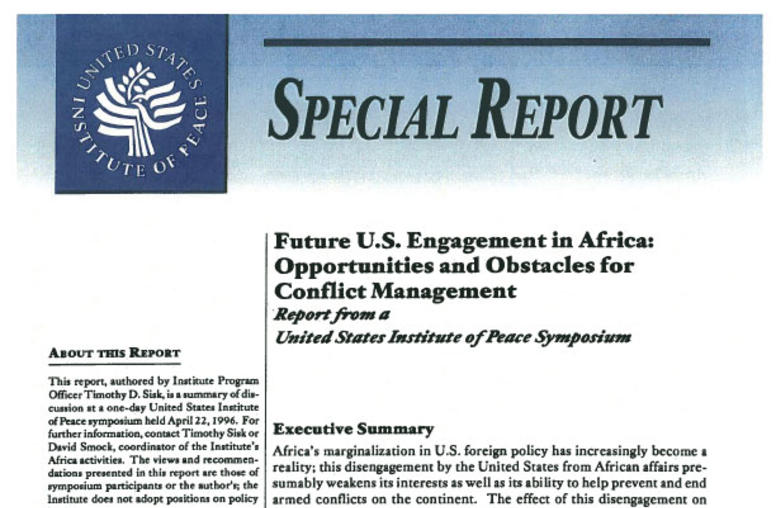
Future U.S. Engagement in Africa Opportunities and Obstacles for Conflict Management
Africa's marginalization in U.S. foreign policy has increasingly become a reality; this disengagement by the United States from African affairs presumably weakens its interests as well as its ability to help prevent and end armed conflicts on the continent.
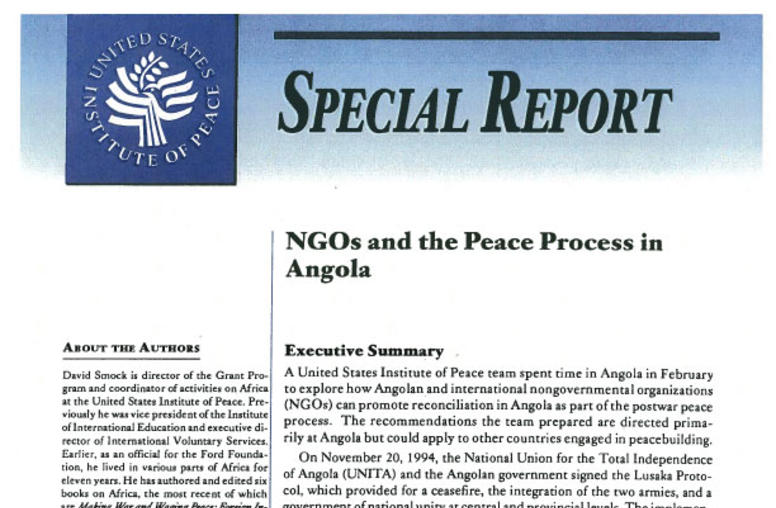
NGOs and the Peace Process in Angola
A United States Institute of Peace team spent time in Angola in February to explore how Angolan and international nongovernmental organizations (NGOs) can promote reconciliation in Angola as part of the postwar peace process. The recommendations the team prepared are directed primarily at Angola but could apply to other countries engaged in peacebuilding.
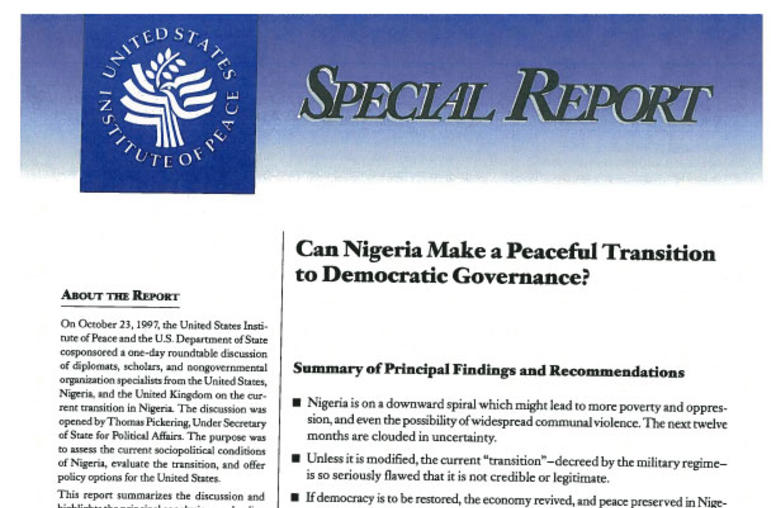
Can Nigeria Make a Peaceful Transition to Democratic Governance?
On October 23, 1997, the United States Institute of Peace and the U.S. Department of State cosponsored a one-day roundtable discussion of diplomats, scholars, and nongovernmental organization specialists from the United States, Nigeria, and the United Kingdom on the current transition in Nigeria. The purpose was to assess the current sociopolitical conditions of Nigeria, evaluate the transition, and offer policy options for the United States.